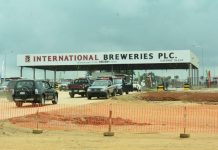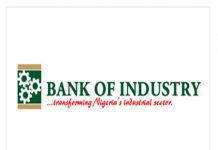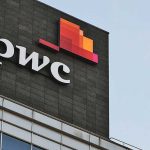The removal of the fuel subsidy in Nigeria caused a sharp strengthening of price pressures in June. In turn, rates of expansion in output and new orders softened but remained marked nonetheless. Business confidence dipped to a near-record low. Intensifying inflationary pressures encouraged companies to expand inventories to try and get ahead of further price increases. Meanwhile, employment was up modestly for the second month running. The headline figure derived from the survey is thec Purchasing Managers’ IndexTM (PMI®). Readings above 50.0 signal an improvement in business conditions on the previous month, while readings below 50.0 show a deterioration. The headline PMI remained above the 50.0 no-change mark in June. Although dipping slightly to 53.2 from 54.0 in May, the reading signaled a solid monthly improvement in the health of the private sector. While overall business conditions remained on a positive trajectory, firms faced a much stronger inflationary environment at the end of the second quarter of the year, linked to the removal of the fuel subsidy. Purchase prices increased at the fastest pace since last August, while the rate of selling price inflation accelerated sharply to the steepest in the year-to-date as firms passed higher costs on to their customers. Issues around the ending of the fuel subsidy also acted to limit the pace of output growth, according to respondents, although activity was still up markedly in the latest survey period. Output has now risen in each of the past three months amid higher customer numbers and growth of new orders. Wholesale & retail bucked the wider trend and posted a drop in activity. New business was also up for the third successive month.
The rate of expansion was marked, albeit the softest in the current sequence of growth. Higher new orders encouraged firms to expand employment for the second month running, although the pace of job creation was again only modest. Despite increasing staffing levels, firms recorded a build-up of backlogs of work, due to an expansion in new business and some difficulties securing inputs. Some companies reported having brought forward purchasing and expanded inventories ahead of predicted increases in the costs of materials in the months ahead. This, allied with increasing workloads, meant that stocks of purchases were accumulated to the largest degree in eight months. Business confidence dropped to the second-lowest on record in June and was only fractionally above last November’s nadir. Companies remained optimistic that output will increase over the coming year, however, linked to investment, business expansion plans, and proposed marketing drives.















































